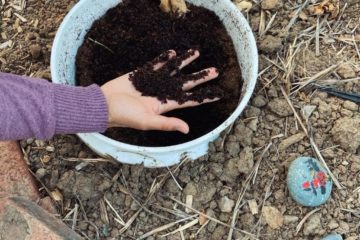Written by Anastasia Mathews, Nonprofit Management Intern
Growing diverse foods is important for our health, resilience to climate change, and ensuring food security for our future.
There are around 300,000 edible plant species on Earth, but humans only eat around 200 different species. (Barnett, 2015) Within these species, however, there can be thousands of varieties. The potato, for example, has over 4,000 different varieties. (International Potato Center) One of the major ways that crop diversity is maintained is through seed banks. Seed banks hold seeds for many different varieties of a crop that can be sent out to researchers and breeders who are trying to make new varieties. The Svalbard Global Seed vault held over a million seed samples from all around the world as of 2020. (Crop Trust)
How does having diverse food affect health?
While humans eat around 200 different crops, more than 50% of plant-derived calories come from just three crops: rice, wheat, and maize. (Biodiversity International) A diverse, nutritionally-rich diet is needed for proper nutrition. This can be done through both growing a variety of foods, and sometimes new varieties can be produced to meet nutritional needs (Crop Trust) An example of this is Golden Rice: a variety of rice that has Vitamin A added to it, in order to address Vitamin A deficiencies in places where the majority of a person’s diet consists of rice. (Dubock, 2018)
Diversity for food security and dealing with the impacts of a changing climate:
A huge benefit of crop diversity is the increase in disease and pest resistance. If there are multiple crops in the same area, if one is affected by a disease, it will just affect that crop and not destroy the entire harvest. “The more diverse a farming system is with plants, animals and soil-borne organisms, the more varied the population of beneficial pest-fighting microbes in the soil.” (Walia, 2020) The more diverse a farm, the healthier it is. Some varieties of crops also have better disease and pest resistance, which increases the likelihood that the crop will be productive. Just like disease and pest resistance, tolerance to drought and high temperatures can be bred into plants. Here in California, many farmers have already been affected by drought, and plants that require less water could become essential. According to Crop Trust “Crop diversity is fundamental to agricultural growth. Crop diversity enables farmers and plant breeders to develop higher yielding, more productive varieties that have the improved quality characteristics required by farmers and desired by consumers.”
Our gardens at Each Green Corner
At Each Green Corner, in our Living Campus Gardens and other garden sites, we are always growing many different crops in a relatively small space. If you’re interested in seeing one of our gardens, sign up to volunteer at one of our upcoming workdays! See a calendar of events here: https://www.eachgreencorner.org/calendar/
Sources
The Nature of Crops: Why do we eat so few of the edible plants? New Scientist. Retrieved May 17, 2022, from https://www.newscientist.com/article/mg22730301-400-the-nature-of-crops-why-do-we-eat-so-few-of-the-edible-plants/
Crop Diversification. (n.d.). Extension | University of Nevada, Reno. Retrieved May 17, 2022, from https://extension.unr.edu/publication.aspx?PubID=3816
Crop Diversity: Why it Matters. (n.d.). Crop Trust. Retrieved May 15, 2022, from https://www.croptrust.org/our-mission/crop-diversity-why-it-matters/
Diet diversity for nutrition and health. (n.d.). Retrieved May 17, 2022, from http://www.bioversityinternational.org/research-portfolio/diet-diversity/
Dubock, A. (2019). Golden Rice: To Combat Vitamin A Deficiency for Public Health. In Vitamin A. IntechOpen. https://doi.org/10.5772/intechopen.84445
Potato Facts and Figures. (n.d.). International Potato Center. Retrieved May 17, 2022, from https://cipotato.org/potato/potato-facts-and-figures/
Raubach, S., Kilian, B., Dreher, K., Amri, A., Bassi, F. M., Boukar, O., Cook, D., Cruickshank, A., Fatokun, C., El Haddad, N., Humphries, A., Jordan, D., Kehel, Z., Kumar, S., Labarosa, S. J., Nguyen, L. H., Mace, E., McCouch, S., McNally, K., … Shaw, P. D. (2021). From bits to bites: Advancement of the Germinate platform to support prebreeding informatics for crop wild relatives. Crop Science, 61(3), 1538–1566. https://doi.org/10.1002/csc2.20248



0 Comments